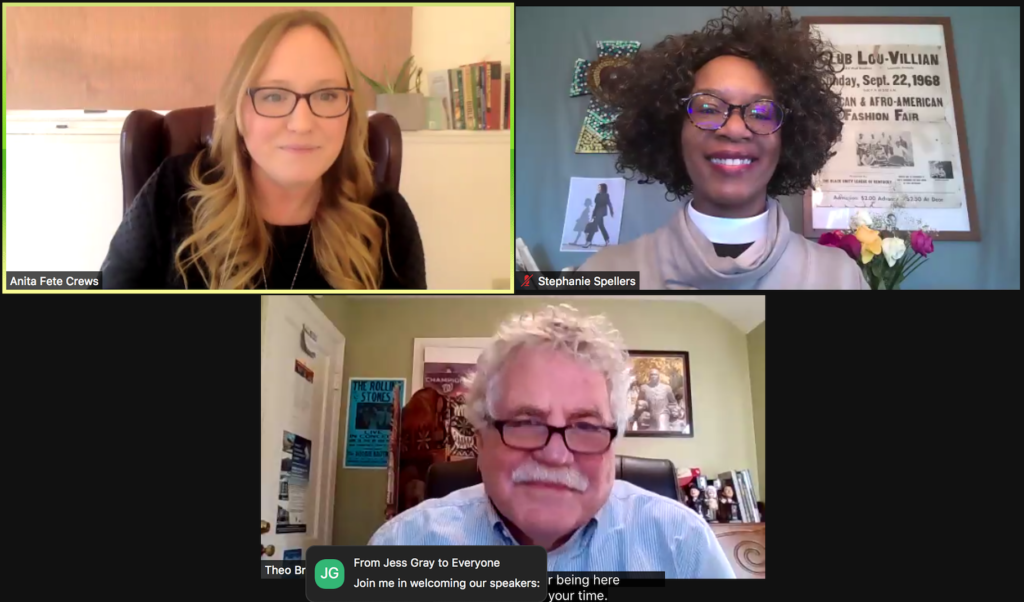Recording Available: Make Me An Instrument of Peace, Bring People Together to Care For Creation

Solving climate change requires us to work together in order to succeed in healing our communities and our planet. But in such a polarized environment, we often don’t know how to bridge the divide. Civil discourse shows us a path forward. In this latest episode of our Let’s Talk Climate webcast, Make Me An Instrument of Peace: Bring People Together To Care For Creation, we learned how empathy, compassion, and productive communication is advancing climate policy today. Religious communities are playing important roles in seeking solutions through dialogue and creating safe spaces to share in each other’s humanity.
Our guests, The Rev. Canon Stephanie Spellers of The Episcopal Church, and Theo Brown of the National Institute on Civil Discourse shared context for civil discourse rooted in faith, provided concrete examples of programs and strategies for pursuing civil discourse, and extended an invitation to our audience to join them in seeking opportunities to share with others across differences on issues like climate change.
Rooted in a series of loving questions found in The Episcopal Church’s new program, From Many, One, Canon Spellers offered an invitation to the audience to participate in civil discourse on issues like climate change. “I hope that one thing you’ll do is find one other person, and have a conversation with them, especially someone different from you and share with each other. (Ask), ‘What do you love? What have you lost? Where does it hurt? What do you dream?’, and then be open to hearing something that may illuminate the world in a way you did not imagine.”
Theo Brown shared how civil discourse can be both an extension of compassion and also help to refine our own understanding of an issue and strategy for action. “If you really listen to someone who’s more conservative or more liberal than you, you may get a new insight that makes you better capable of making a policy proposal or finding a way to work together. In some situations this can have profound impact.. it can refine and make my position better because I had a more nuanced understanding of the problem after these dialogues.”
Watch Here
Visit the National Institute of Civil Discourse for more on engaging across differences.
Visit The Episcopal Church’s civil discourse resources, From Many, One and Make Me An Instrument of Peace.
For more information and resources from Blessed Tomorrow, make sure to subscribe to our Blessed Tomorrow newsletter, register for our upcoming episodes in the Let’s Talk Climate webcast series here, and subscribe to watch our previous episodes on ecoAmerica’s Youtube channel.
Resources shared during the live session listed below:
AP coverage on bridging the political divide
White House summary of climate executive orders:
Washington Post coverage of the Biden climate executive orders
New York Times coverage of the Biden climate executive orders
Inside Climate News piece on how global warming could stop relatively quickly if action is taken
The Big Bold Jewish Climate Fest
Let’s Talk Faith and Climate: Communication Guidance for Faith Leader
The Episcopal Church’s The Way of Love
Blessed Tomorrow Moving Forward Guide (in English & Spanish)
How Faith Communities Lead Social Movements
Preaching in the Purple Zone, by the Rev. Dr. Leah Schade
The Episcopal Church’s Social Justice Asset Map
Join the MomentUs campaign to commit to bold, ambitious climate action
